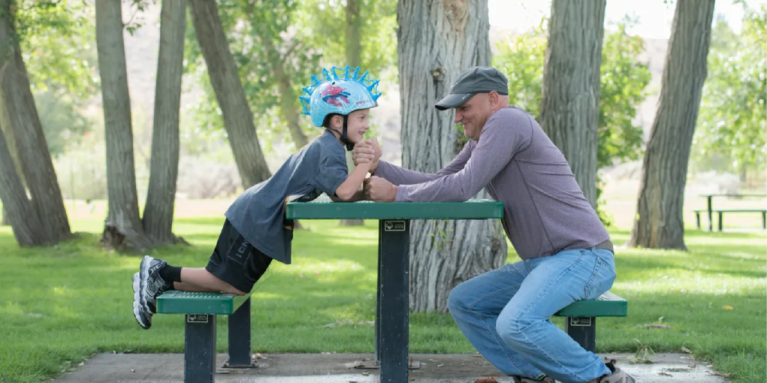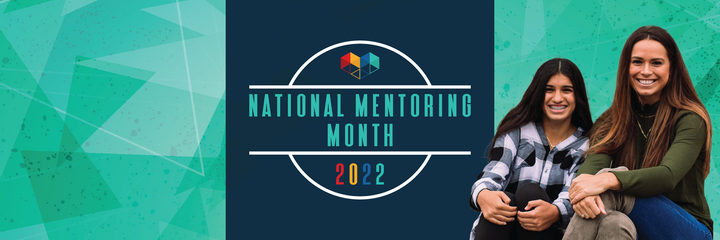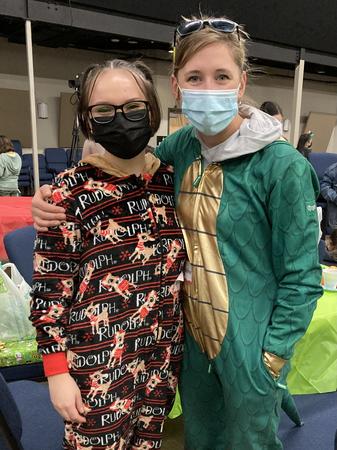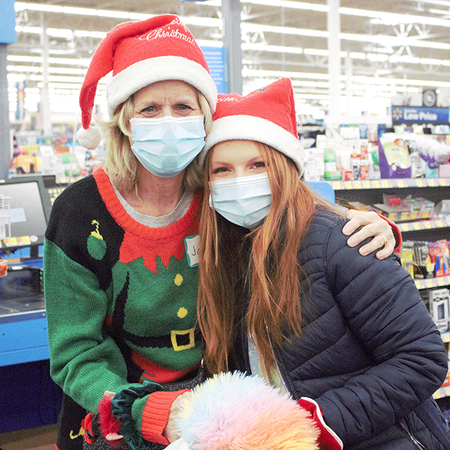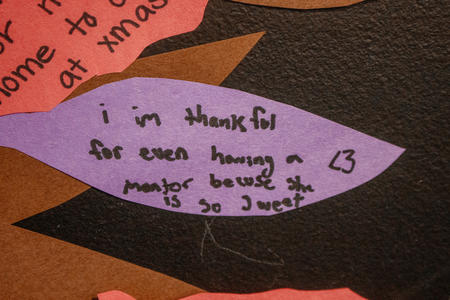Jan. 26, 2022: January is National Mentoring Month, and the Colorado Department of Human Services, Office of Behavioral Health (OBH) wishes to celebrate the work of a few of our grantees who are invested in creating and expanding opportunities for youth through mentoring. The OBH Community Substance Use Prevention and Early Intervention team offers five-year grants through a competitive application process for Substance Abuse Block Grant Prevention Funds to support mentoring efforts in Colorado communities. Mentoring has been proven to increase protective factors such as connection to trusted adults and community. Today we spotlight the work of Larimer County Partners (LCP) by featuring a submission from LCP Community Based Program Manager Abby Rains.
Mentoring during a pandemic
Mentoring during a pandemic means being adaptable. Each partnership thrives in different ways, and each partnership has their own levels of comfortability. Partners has supported fully virtual partnerships, in-person partnerships, and hybrid partnerships–all of which can be successful. Fully virtual partnerships rely on video meetings, phone calls, online games, and activity drop offs to build and sustain a positive relationship. It’s also impressive to see partnerships simply switch back and forth between meeting virtually and meeting in person, depending on personal comfort levels, health recommendations and potential exposures. The mentoring programs at Partners have embraced the challenges that have been brought by the pandemic, offering resources and support to our youth and mentors as we all continue to adapt.
In the early stages of the pandemic, Partners implemented a few different virtual group activities, such as our Mentor Appreciation Game Night, our Origami Night (dropping off origami paper to youths' homes and providing instruction on a live Zoom call), and our Paint and Snack Night (with a similar structure to Origami Night). Our most successful virtual activity was the Newly Matched Game, where mentors and mentees were asked questions about their partner. This activity was so popular, Partners offered the same activity again several months later. We also provided activities that allowed partnerships to participate on their own time. For example, we had a Rock Hunt, where partnerships could go out into the community and find and contribute to hidden painted rocks.
As group activities became a little bit safer, we provided plenty of outdoor opportunities, such as a Nature Walk, an Earth Day Clean-Up, and a DIY Kite activity. We eventually found ourselves implementing our favorite annual activities, such as Archery, Horseback Riding, and the Partners Bowler Bash, which is our way to say thank you to our youth, volunteers, and families by offering a night filled with food, fun and bowling. We ended, of course, with our most anticipated activity of the year, Spark Holiday Joy, where youth were given gift cards to purchase presents for their loved ones. This was followed by a group celebration of breakfast and gift wrapping. It has been so great seeing the Partners community spending time together in person again.
Partnership supports remote learning
Supporting youth in school looks a lot different this year than it has in the past. One school-based mentor has really been exceptional in rising to this challenge. Her mentee didn’t have a good space to do her virtual schoolwork, so the mentor decided to help her mentee make a desk for her bedroom so she would have a dedicated space for schoolwork. The mom also asked the mentor to attend the teacher meet and greet with them, which she was more than happy to do. The mentor was so excited to share that she and mom are working together to help her mentee succeed in school during a challenging year.
Positive Outcomes
The power of mentoring shows that there are endless positive outcomes. After being matched with a mentor for one year, many Partners youth show an increase in confidence, better boding with adults, and improvement in social skills and decision-making. However, it’s often more striking to hear about these positive outcomes through individual partnerships. For example, one partnership initiated a community-service project by picking up debris from a home that was destroyed in the Cameron Peak Fire. Another youth in the Partners program found that their weekly partnership time taught them how to stick to a commitment, and they even developed a new habit of going to school regularly after skipping classes often. One youth shared that their mentor allowed them to trust adults again, after feeling under supported by the adults in their life while simultaneously developing a positive and consistent partnership with their mentor. Whether matched for one year, or several years, it’s obvious that mentoring continues to have a positive impact on youth and volunteers, and a pandemic year is no different.
How to get involvedThe biggest way to make an impact is to volunteer with our programs. Partners is always looking for mentors! Our Community-Based mentors are 21 years of age or older and meet with their mentee for three hours each week for one full year. Our School-Based mentors are at least 18 years old and meet with their mentee for one hour each week at the youth’s school for one full school year. Activity Volunteers help provide transportation and support for waiting youth at monthly activities. Partners also welcomes financial contributions and corporate sponsorship to help support our mentoring and prevention education programming. Learn more at www.poweredbypartners.org/get-involved. |
